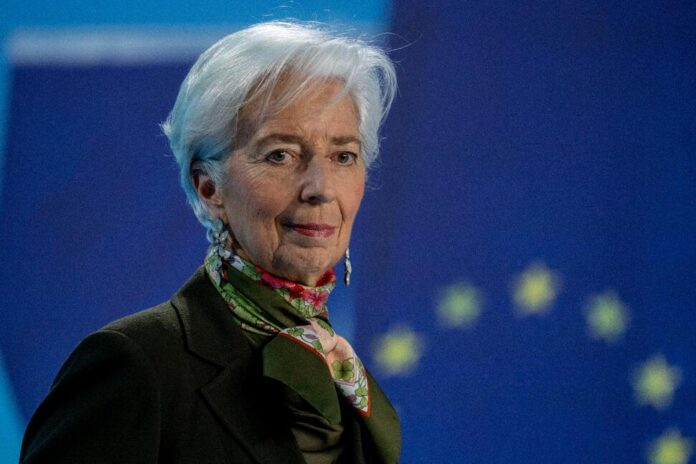The fragmentation of the world economy into rival blocs led by the United States and China threatens to destabilize global commerce, increase inflation and weaken growth, Christine Lagarde, the president of the European Central Bank, warned Monday
The fragmentation of the world economy into rival blocs led by the United States and China threatens to destabilize global commerce, increase inflation and weaken growth, Christine Lagarde, the president of the European Central Bank, warned Monday.
Speaking to the Council on Foreign Relations in New York, Lagarde said that economic data dating to 1900 shows that “geopolitical risks led invariably to higher inflation.”
Costs tend to mount, she said, as countries stop or reduce trading with rivals and seek supplies at home or from allied countries. She added that it can be difficult to sever ties: Europe, for example, relies on China for 98% of its rare earth minerals, which are used in cellphones and computer hard drives, among other products.
If world supply chains were to split along geopolitical lines, Lagarde warned, consumer prices could rise 5% in the near term and 1% in the long run.
Lagarde also said the United States could not take for granted the U.S. dollar’s continued role as the go-to currency for world trade, though for now it remains unchallenged. China, Russia and other countries are seeking to wean themselves off dependence on the United States, which has sought to use its dominance to impose sanctions, most notably on Russia after its invasion of Ukraine last year.
A more splintered and less efficient world economy, Lagarde said, will make it harder for central banks to contain inflation. They will need help from government policymakers, who must find ways to control costs by improving the efficiency of supply chains and by conserving energy.
Lagarde, who began leading the ECB in 2019 after eight years as head of the International Monetary Fund, held out hope that this goal can be accomplished. She pointed to the challenge Europe had faced after Moscow cut off natural gas supplies after it invaded Europe.
Aided by an unusually warm winter, Europe succeeded in saving energy, finding alternative energy supplies and opening liquefied natural gas terminals that permitted access to sea-bound imports from the United States and other countries much faster than expected.
To combat inflation exacerbated by the Ukraine war’s disruption of energy and food markets, the E CB has aggressively raised interest rates.
“It is beginning to work,’’ Lagarde said.
She credited an easing of supply chain backlogs and lower energy prices, along with the ECB’s tighter monetary policy.Inflation in the 20 countries that share the euro currency slowed in March to 6.9%, the lowest level in a year, down from a peak of 10.6% in October.



